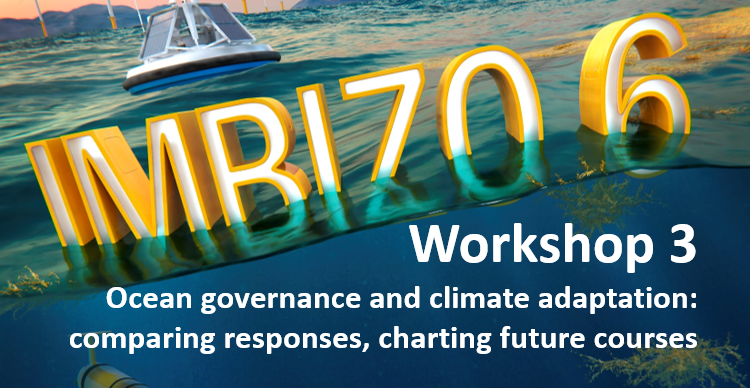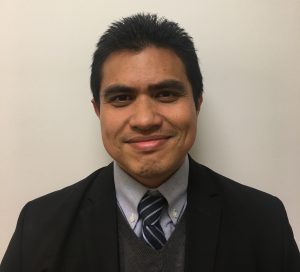
Workshop 3: Ocean governance and climate adaption: comparing responses, charting future courses
Co-conveners: David VanderZwaag (Canada), Karen Evans (Australia), Samiya Selim (Bangladesh) and Andrea Belgrano (Sweden)
IMBIZO 6 Recordings: IMECaN Event | Plenary and Keynote | Workshop 1 | Workshop 2 | Workshop 3
Keynote Speaker: Clement Yow Mulalap (Micronesia)

Clement Yow Mulalap, hailing from the island of Wa’ab in the Federated States of Micronesia, is an international law consultant who specializes in international environmental law (particularly climate change law and biodiversity conservation law), the law of the sea, and international Indigenous law, with several articles and chapters published on those matters. Among other responsibilities, he is currently the Legal Adviser for the Permanent Mission of the Federated States of Micronesia to the United Nations and has represented the Federated States of Micronesia in various multilateral fora, including meetings for the UNFCCC and the CBD, the development of the Mining Code for the ISA, and negotiations for the BBNJ instrument.
About this workshop
While mitigating climate change is critical to countering the numerous threats to marine biodiversity and coastal communities, adaptation is a parallel need as emphasized under the Paris Agreement. Every country is required to: engage in adaptation planning processes which are gender responsive, participatory and respectful of human rights; consider the formulation of national adaptation plans and prioritized actions; build the resilience of socioeconomic and ecological systems; and submit periodic adaptation communications. The Paris Agreement also encourages the sharing of good practices and lessons learned in relation to adaptation science, planning, policies and implementation actions.
Various governance approaches to ocean climate adaptation have emerged. They include: the establishment of marine protected areas and other effective area-based measures to enhance resilience; implementation of precautionary and ecosystem approaches; ecological restoration; integrated coastal and ocean management and marine spatial planning; and reduction of other human stressors, such as overfishing and pollution. The need for adaptive and science-informed policy responses has been highlighted in the Implementation Plan for the UN Decade of Ocean Science for Sustainable Development 2021-2030.
Objective and questions
The overall objective of this workshop is to share case study experiences on how ocean climate adaptation is faring at regional, national and local levels in order to draw out buoyant governance practices and lessons learned. These lessons can be based on learning from success, but also include learning from failure. Key multilevel governance questions will be explored in the case studies. Examples of the types of questions that may be addressed at the three different levels are listed below. These are not exhaustive and alternative questions for exploration are welcomed.
Regional
- What is the extent of regional scientific cooperation relating to climate change adaptation and what are some of the approaches to facilitating cooperation?
- How are regional fisheries management organizations and/or regional sea arrangements responding to climate change and supporting adaptation by marine-based industries?
- What transboundary area-based management approaches for increasing ecosystem resilience have been implemented and how effective are they?
- What are the major impediments to adaptive management at the regional level?
National
- What national adaptation strategies or policies have been implemented and what was the process for their development?
- Are there specific examples of good governance responses to shifting species and ecosystems?
- How “climate ready” are national laws and policies to address adaptation, for example, in relation to MPAs, fisheries, aquaculture, species at risk protection, environmental impact assessment and integrated planning?
- What are the major constraints to adaptive management at the national level?
Local
- Are there efforts to document local and Indigenous knowledge regarding changing marine ecosystems, for example, through “citizen science” initiatives?
- Have local and Indigenous communities been involved in adaptation planning and if so, to what extent and in what ways?
- Are there examples of local or Indigenous governance responses to shifting species and ecosystems, such as, through community-based management measures or new livelihood opportunities?
- What are the major challenges in implementing adaptive governance at the local level?
Outcomes and expected impact
Two major impacts are expected. By bringing together a mix of natural and social science participants, the workshop will foster a network of researchers who work at the adaptation science-policy interface. The workshop will also facilitate the sharing of “real life stories” on what adaptation challenges are being experienced at regional, national and local levels and what is needed for achieving buoyant governance responses.
The intention is for the case studies presented at the workshop to provide the basis for a book publication on adaptive and dynamic governance to address ocean climate change. Publication details and participation will be decided by workshop participants. Additional/alternative outputs are welcomed through participant suggestions.